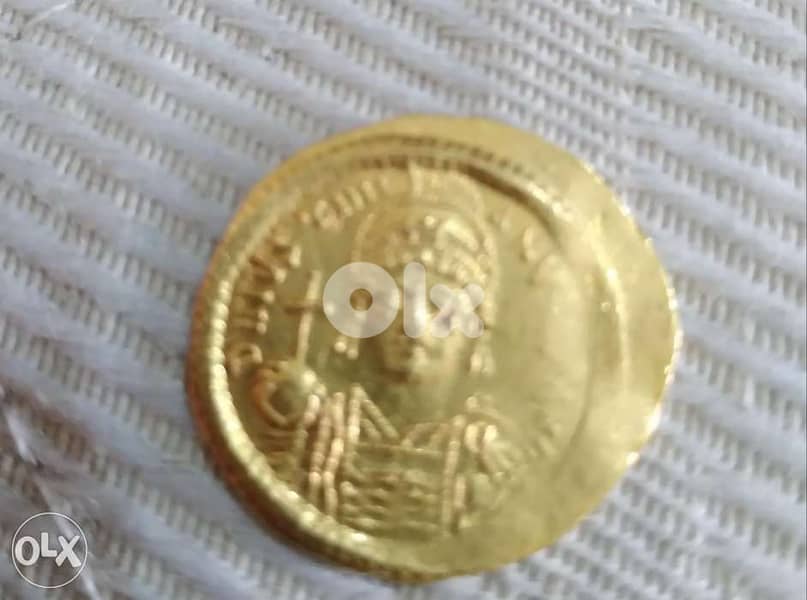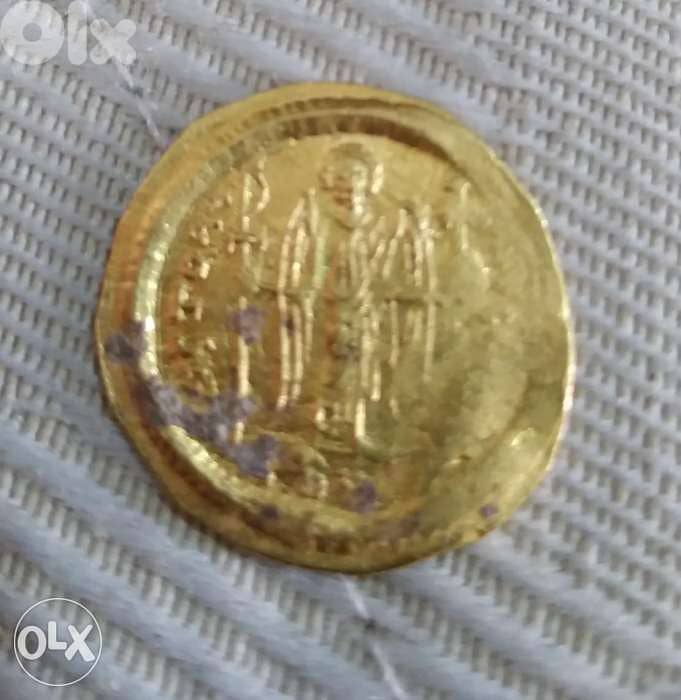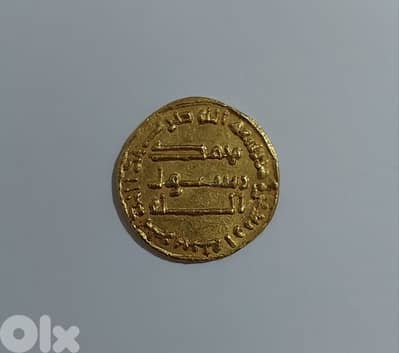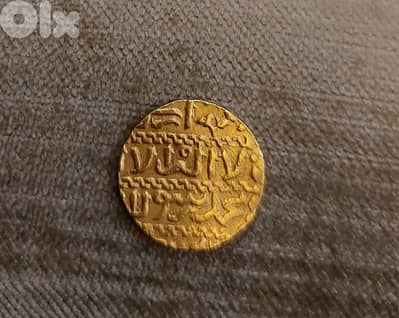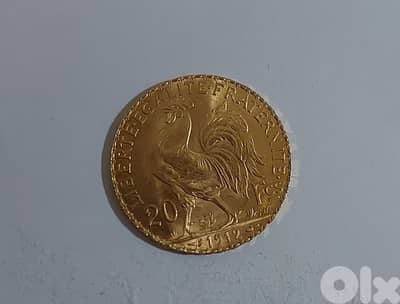1 / 2
Details
TypeCurrency
ConditionUsed
Seller TypeIndividual
Description
Ancient Eastern Roman Byzantine Gold Coin for Justinan I year 527 AD weight 4.40 grams diameter 22mm. Diameter
Description
Byzantine Empire, Justinian I, 527-565, AV Solidus
Obv. Bust of diademed Emperor holding globus cruciger,
Rvs. Angel with globus cruciger and christogram wand.
The emperor known as Justinian I is probably the best-known ruler of the Eastern Roman Empire and Late Antiquity. His reign, which lasted almost 40 years, was marked by the attempt to restore the Roman Empire (Justinian's work of restoration) and at the same time by the transition of the Roman Empire into the Byzantine Empire. He himself was the last Roman emperor whose mother tongue was Latin.
Justinian was born Flavius Petrus Sabbatius around 482 AD in Tauresium (Macedonia), the son of a peasant. His uncle Justin was making a career in the army at the time and soon brought Justinian to the capital Constantinople to give him a good education.
After Justin, as Justin I, ascended the Eastern Roman throne in 518, Justinian was built up piece by piece to be his successor. After being adopted by Justin, he was given the name suffix Iustinianus and went on to have a tremendous career. He soon acted as the emperor's most important advisor and was considered the official heir to the throne from 525 AD. Because of his rapid social rise, he was exposed to hostility from the senatorial upper class throughout his life.
After the death of his uncle on 1 August 527, Justinian, as Justinian I, became the new sole ruler of the Eastern Roman Empire. At that time, its territory basically still covered almost the same areas as at the time of the division of the empire in 395. However, the Eastern Roman emperors had never given up their claims over the former territories of the West, even after the fall of Western Rome.
At the beginning of his term of office, however, Justinian had to devote himself not to the West but to the East. There stood a great and powerful enemy with whom Rome had already fought countless wars: the Persian Sassanid Empire. The conflict had already become "hot" again a year before Justinian's accession to power. After several victories (e. g. at Dara in 530) and despite the defeat at Callinicum (April 531), Emperor Justinian had a great victory celebration held in 531 AD. In reality, the conflict ended without a clear winner and was bought by a large payment from the Romans.
Already at the beginning of his reign, Justinian's strong attachment to the Christian faith was also evident. He claimed to have received his rule directly from God and eagerly promoted Christianisation. The closing of the Neoplatonic school of philosophers in Athens in 529 is considered one of the striking events signifying the end of antiquity. Presumably, the pagan influence of the school was a thorn in Justinian's side.
In later years, his measures for the good of Christianity became even more radical: there were persecutions of non-Christians, infant baptism became compulsory and apostasy was punishable by death. In addition, there were book burnings of "pagan" literature. Only Judaism continued to be officially tolerated, although its situation deteriorated considerably.
Justinian's measures finally led to the last parts of Roman popular sovereignty being transformed into a strong divine sovereignty - a form of rule that was to dominate Europe throughout the Middle Ages. Some monarchs in Europe (e. g. Great Britain) still have the addition "by the grace of God" in their title.
Location
Lebanon
Ad id 110931622
Report this ad
Related ads
Listed by private user
Mohamad
Member since Nov 2016
See profile
Your safety matters to us!
- Only meet in public / crowded places.
- Never go alone to meet a buyer / seller, always take someone with you.
- Check and inspect the product properly before purchasing it.
- Never pay anything in advance or transfer money before inspecting the product.
